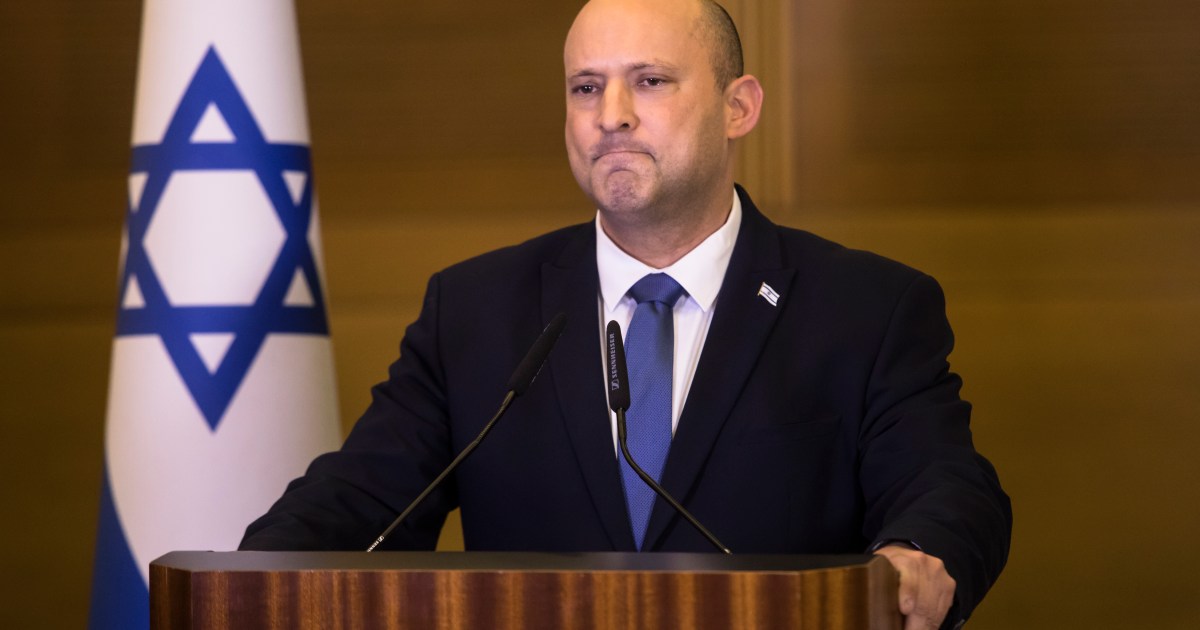Al-Jazeera correspondent reported that the vote to dissolve the Israeli Knesset was postponed until Thursday morning, while Prime Minister Naftali Bennett said that he would not run in the upcoming elections and announced his retirement from political life.
The delay in voting to dissolve the Knesset came due to differences between the opposition and the coalition over passing an important package of laws before the dissolution.
Unless there are new changes, the Israeli Knesset will begin this Thursday morning the procedures for preparing the dissolution bill, to be presented to the Knesset plenary at noon on Thursday for a vote.
The dissolution of the Knesset means paving the way for a fifth vote in less than 4 years.
If the solution is voted on, Foreign Minister Yair Lapid will assume the position of caretaker prime minister.
In the same context, Israeli Prime Minister Naftali Bennett announced his retirement from political life, and said in a press conference that he had decided not to run in the upcoming elections.
"I have no intention of running in the upcoming elections, but I will remain a loyal soldier to this country, which I have served all my life as a soldier, officer, minister and prime minister," Bennett said in a speech to the Knesset, confirming the handover of the leadership of the Yamina party to current Interior Minister Ayelet Shaked.
"Soon I will no longer be the prime minister of Israel and pass the responsibility on to my friend Yair Lapid (currently foreign minister), who I will continue to help as needed as alternate prime minister," Bennett added in his speech, which could be his last as prime minister.
political dispersion
It is noteworthy that Bennett took office in June 2021, ending the 12-year rule of former Prime Minister Benjamin Netanyahu.
But a year later, Bennett's coalition lost his majority in the Knesset, which led him to announce last week his intention to dissolve the parliament and call new elections.
These developments come at a time when opinion polls reflect the continuing state of political dispersion, with 13 parties sharing the 120 seats in the Knesset.
Lapid said last week, "What we need today is to return to the concept of Israeli unity and not let dark forces divide us."

